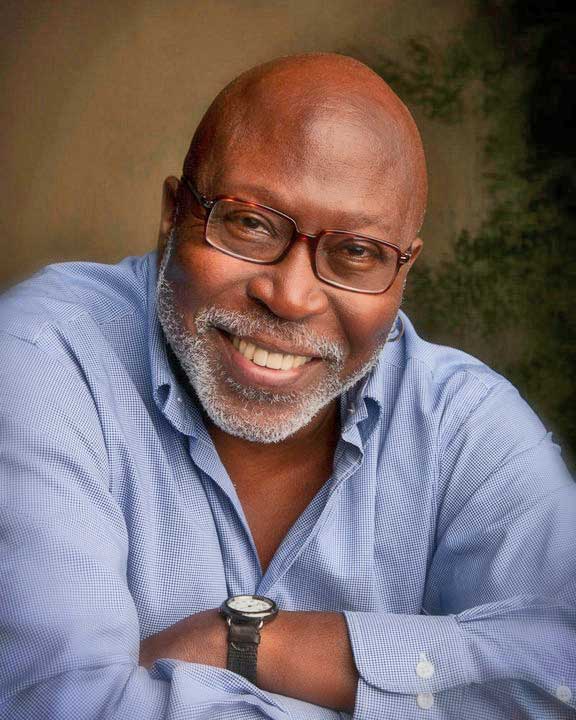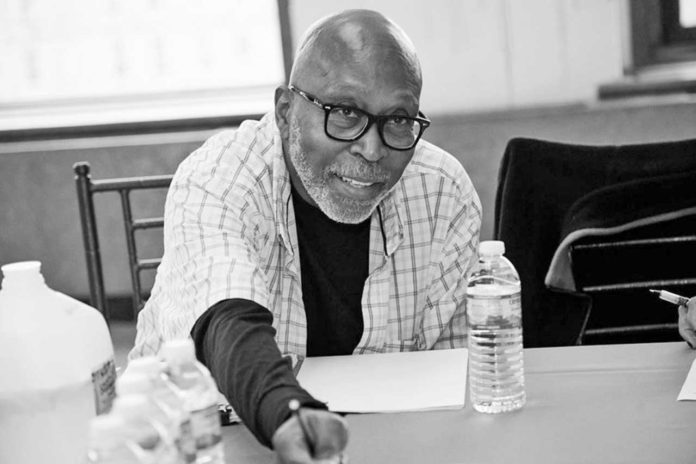Walter Dallas, an influential figure on the Philadelphia theater scene as a director, administrator and teacher, died of pancreatic cancer on May 3. He was 73 and lived in Atlanta, Georgia.
Barbara Silzle, a longtime friend and executive director of Philadelphia Cultural Fund, confirmed the death. Dallas is survived by his husband, Paul Siler.
Dallas’ half-century career included high-profile associations with theaters from coast to coast, but his greatest impact was felt in Philadelphia, his artistic home for 25 years.
In 1983, after earning a B.A. from Morehouse College and an M.F.A. from Yale School of Drama, Dallas was recruited by the Philadelphia College of Performing Arts to help develop a theater conservatory. That program morphed into the University of the Arts’ School of Theatre Arts, which Dallas directed for a decade.

“As creator of the UArts theater department and as a gifted and beloved teacher, his students went on to create much of what we now know as the Philly theater scene,” said longtime Philadelphia Inquirer theater critic Toby Zinman, who taught alongside Dallas at UArts. “What a massive debt Philadelphia theater owes Walter Dallas!”
He left his tenured professorship in 1992 to assume the artistic directorship of Freedom Theatre, one of the country’s leading African-American theater companies.
The decision to forgo the security of an academic position for the relative uncertainty of a life in the theater was “pure Walter,” said Silzle, who first met Dallas when she was an administrator at Philadelphia College of Performing Arts. “He was going to go and do this because it was important to him.”
Under Dallas’ leadership, Freedom Theatre gained full Equity status; he also led a successful capital campaign to build the John E. Allen Jr. Theatre on North Broad Street, which opened in 1996 and was named for the company’s late founder.
Dallas remained in the top post at Freedom until 2008, when he left to become senior artist-in-residence at the University of Maryland’s School of Theatre, Dance and Performance Studies.
In his later years, Dallas remained active as a freelance director, often returning to work in Philadelphia. He received a Barrymore Award nomination in 2010 for his direction of “Blue Door” at the Arden Theatre Company.
Colleagues, students and friends remember Dallas as a rigorous artist and a generous soul. “He treated everybody equally,” said Silzle. “Those undergrads in his theater program were as precious to him as the most renowned actor he worked with — and he worked with many.”
Jennifer Childs, co-founder and producing artistic director of 1812 Productions, was an early student of Dallas’ at UArts. “He was so wise and so kind,” she said in an interview. “He exposed us to so many different styles of performance, and in our senior year, we worked with as many directors as we could. He really wanted us to experience the depth and breadth of all the styles available and what they could offer us. That idea of really wanting us to become our own artists, and our own people, was a gift.”
Local actor Brian Anthony Wilson began his career at Freedom Theatre. Dallas directed him many times, including in a production of “Thurgood” at Maryland’s Olney Theatre in 2017, which he called “the best theatrical experience I’ve ever had.”
“Walter was a consummate artist,” said Wilson. “He was just so bright and insightful. He treated everyone with respect, but he was also very discerning. He demanded excellence, but it was no less than what he brought to the table. He didn’t ask more of you than he was willing to give of himself.”
In the classroom, Dallas emphasized the importance of learning from professionals, according to Childs. “Walter was less interested in teachers who had a master’s degree and more interested in teachers who were working,” she said. “We, as students, could see that acting was not just about theory — it was about practice. By having working professionals come in and be part of our education, Walter was fertilizing the ground for many of Philadelphia’s small companies.”
One such professional was Johnnie Hobbs Jr., a stalwart Philadelphia actor whom Dallas brought onto the UArts faculty, where he remained for 30 years. Dallas also directed Hobbs to a Barrymore Award nomination in Freedom’s production of Bill Gunn’s “Black Picture Show.”
“People like myself have a responsibility to share the things he taught and believed in,” said Hobbs. “As they filter through me, I have a responsibility to talk about Walter and to say who he was — to say he has a place in the annals of theater in this community, in the world community. I hope that people understand the significance of what he leant, what he left and what he continues to inspire in us as teachers, artists and human beings.”
Given his amiable manner, it was sometimes easy to forget Dallas’ boldface connections. He directed the world premiere of August Wilson’s “Seven Guitars” at Chicago’s Goodman Theatre and enjoyed a close professional and personal relationship with legendary queer author James Baldwin. Silzle recalled a reading of Baldwin’s final play, “The Welcome Table,” that Dallas arranged at his Philadelphia apartment, at which the playwright was present.
“After the reading was over, Jimmy and I were sitting at Walter’s kitchen table, just talking and having a drink,” said Silzle. “He said he had all these ideas of who he wanted for the production — Geraldine Page, Ruby Dee, just a list of amazing names. And then he said, ‘If I could just get Walter to direct it.’ It was at that moment it really struck me: This is what James Baldwin thinks of Walter Dallas.”
